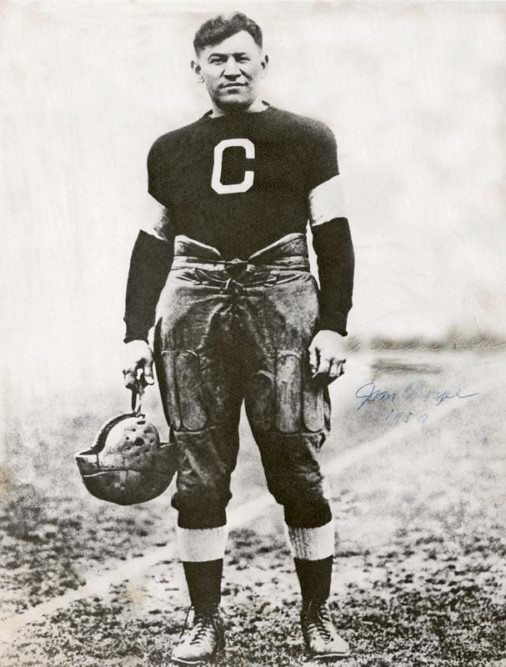Thorpe’s Olympic medals restored after 110 years

LAUSANNE, SWITZERLAND—On Friday, July 15, the International Olympic Committee (IOC) announced that Jim Thorpe will be named as the sole gold medalist in two 1912 Olympic events, the pentathlon and the decathlon. Thorpe was stripped of his gold medals in 1913 after it was discovered he had played a couple of summers of semi-pro baseball. This was a common practice at the time, but athletes do not use their real names, and Thorpe made the mistake of using his.
Thorpe appealed his infraction in a letter to the James Sullivan, secretary of the Amateur Athletic Union: (AAU) “…I was simply an Indian schoolboy and did not know all about such things.”
Sullivan was unmoved and the AAU not only withdrew Thorpe’s amateur status, but they also made it retroactive. The IOC then voted unanimously to strip Thorpe of his medals. The IOC had a policy in place at that time that did not allow such action to be taken beyond 30 days of the infraction. Newspaper accounts prove that action was taken against Thorpe well after 30 days.
Armed with this information, advocates for the now deceased Thorpe were able to have his medals restored in 1983. However, when the medals were stripped in 1913, those who had finished behind Thorpe in the medal standings all jumped up a spot, allowing the silver and bronze medalist to become the gold and silver medalist, and the fourth-place finisher, the bronze medalist. The IOC did not think it proper to strip these men of their medals, however they were acquired, when they were met to rescind the stripping of medals from Thorpe.
But persistent petitioning efforts from Bright Path Strong, a nonprofit organization, advocating the reinstatement of Thorpe as sole gold medalist, compelled the IOC to meet and decide on the medal status. The IOC released a statement that Thorpe’s name would now be displayed as the sole gold medalist in both events. Ferdinand Bie in the pentathlon, and Hugo Weislander, in the decathlon, would be returned to silver medalist status.
A member of the Sac and Fox Nation, Thorpe was born in Oklahoma Territory in 1888. He had a difficult childhood and ran away from school several times, prompting the family to send him to far-off Pennsylvania, and Carlisle Indian School. At Carlisle, Thorpe was mentored by legendary football Coach Pop Warner, and was an All-American in 1911-12. After losing his Olympic medals, Thorpe continued to not only excel at sports, but his status as a public figure grew to romanticized proportions even during his own lifetime. He tried to make a splash in the major leagues, playing for several teams, and packed fans into the stands. He hit .252 lifetime, but with only modest power, and he made a lot of outs. By 1919, at the age of 30, he washed out of baseball.
Thorpe could not know that this paved the way for him to make perhaps his largest and longest lasting contribution to American sport. One thing Thorpe could still do is play world class football. In 1920 the fledgling operation that would become the National Football League (NFL) began operation with Thorpe as the nominal president. Contempt for professionalism was still a factor in society, and the pro game was immensely less popular than college gridiron. Thorpe brought instant appeal to a league that otherwise would have only played before sparse crowds on patchwork fields. Thorpe played and coached in the NFL until 1929, and then retired at the age of 41. The NFL may not have survived its first few seasons without the presence of Thorpe.
Thorpe struggled in life after retirement from competitive athletics. He died in poverty from heart failure in 1953. In 1950 the AP named him the greatest athlete of the half century. In 1970 the NFL put him on their all-time team. Thorpe was a top hand at whatever he applied himself. He won the Intercollegiate Ballroom Dancing Championship in 1912. He barnstormed across America in the late 1920’s heading up an All-Indian basketball team. It was Thorpe’s bad luck to be born at a time when there was no real money in professional sport because his fame, his iconic status, resonates to this day, 69 years after he passed on to the spirit world.
(Contact James Giago Davies at skindiesel@msn.com)
The post Thorpe’s Olympic medals restored after 110 years first appeared on Native Sun News Today.
